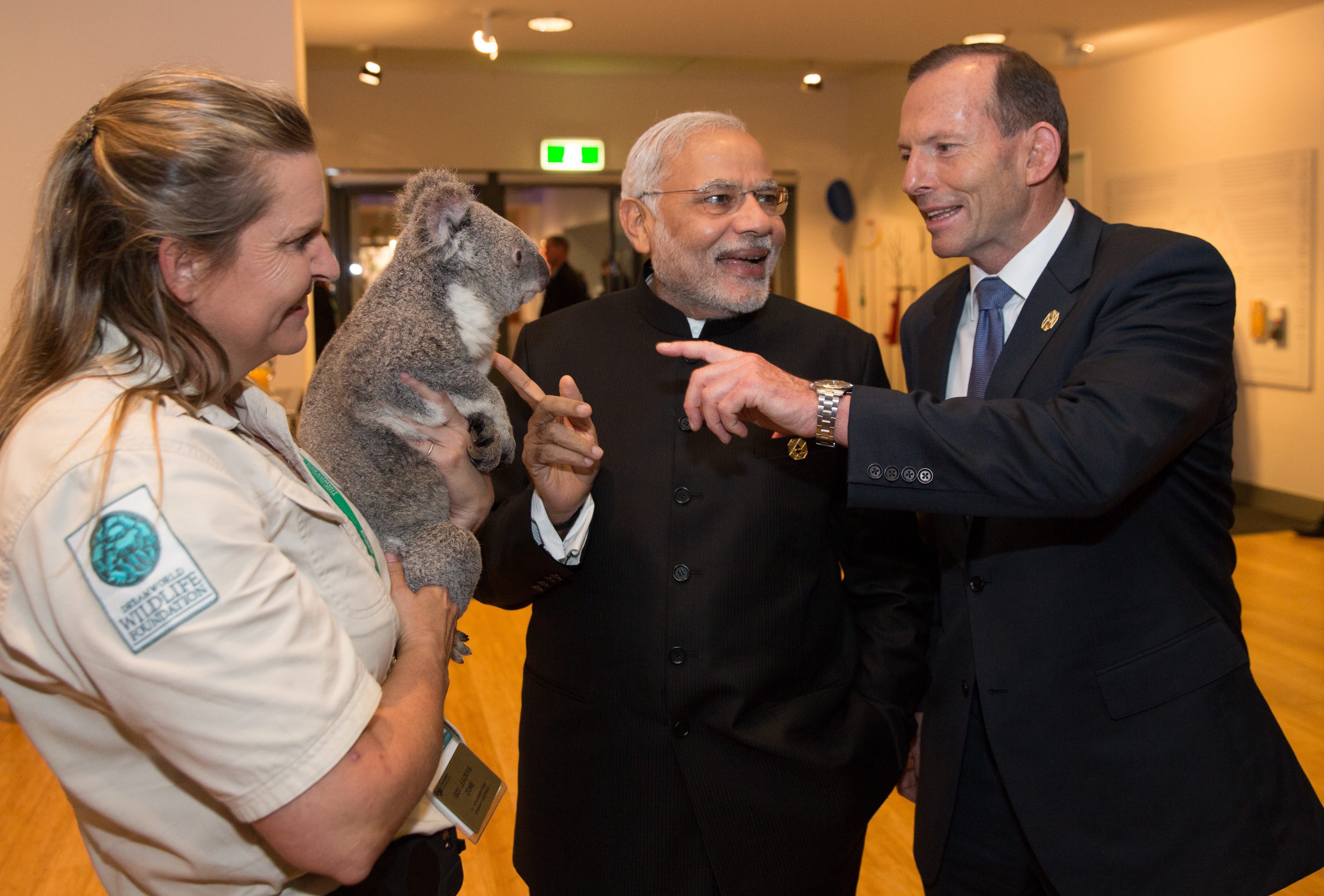ID :
348273
Tue, 11/18/2014 - 09:35
Auther :
Shortlink :
http://m.oananews.org//node/348273
The shortlink copeid
India, Australia agree on closer cooperation on security and trade

Canberra, Nov 18 (PTI) Seeking to enhance defence ties, India and Australia today established a framework for security cooperation, as they decided to conclude a long pending Free Trade pact by the end of next year and an "early closure" of the civilian nuclear deal that will facilitate uranium trade.
Prime Minister Narendra Modi and his Australian counterpart Tony Abbott held talks and decided to establish a Framework for Security Cooperation to reflect their deepening and expanding security and defence collaboration for advancing
regional peace and combating terrorism among other challenges. After the summit talks at the Prime Minister's office, just two months after Abbott's maiden visit to India, the two
countries signed five pacts on social security, transfer of sentenced prisoners, combating narcotics trade, tourism, and Arts and Culture.
"This is a natural partnership, arising from our shared values and interests, and our strategic maritime locations," Modi said at a joint press conference with Abbott.
"Security and defence are important and growing areas of the new India-Australia partnership - for advancing regional peace and stability, and combating terrorism and
trans-national crimes," he said. The security framework, finalised hours before the talks, lays out an extensive "action plan" including annual prime
ministerial summits and maritime military exercises, besides cooperation in counter-terrorism, border control and close consultations on regional and international institutions.
It's confirmation came only after Chinese President Xi Jinping left Canberra for Tasmania, Australian media reported.
Modi said the two sides also "agreed on seeking early closure on the civil nuclear agreement, which will give Australia a chance to participate in one of the most secure and safe nuclear energy programme in the world."
Modi and Abbott had summit talks in Delhi last month during which India and Australia sealed a civil nuclear deal.
Australia has about 40 per cent of the world's uranium reserves and exports nearly 7,000 tonnes of yellow cake annually. India and Australia had commenced negotiations for the sale of uranium in early 2012.
Later in a rare address to the Parliament, Modi said the region has seen huge progress on the foundation of peace and stability.
"But, we cannot take this for granted. Preserving it will be the most important task in the region. India and Australia can play their part in it - by expanding our security
cooperation and deepening our international partnerships in the region," he told the lawmakers. PTI





